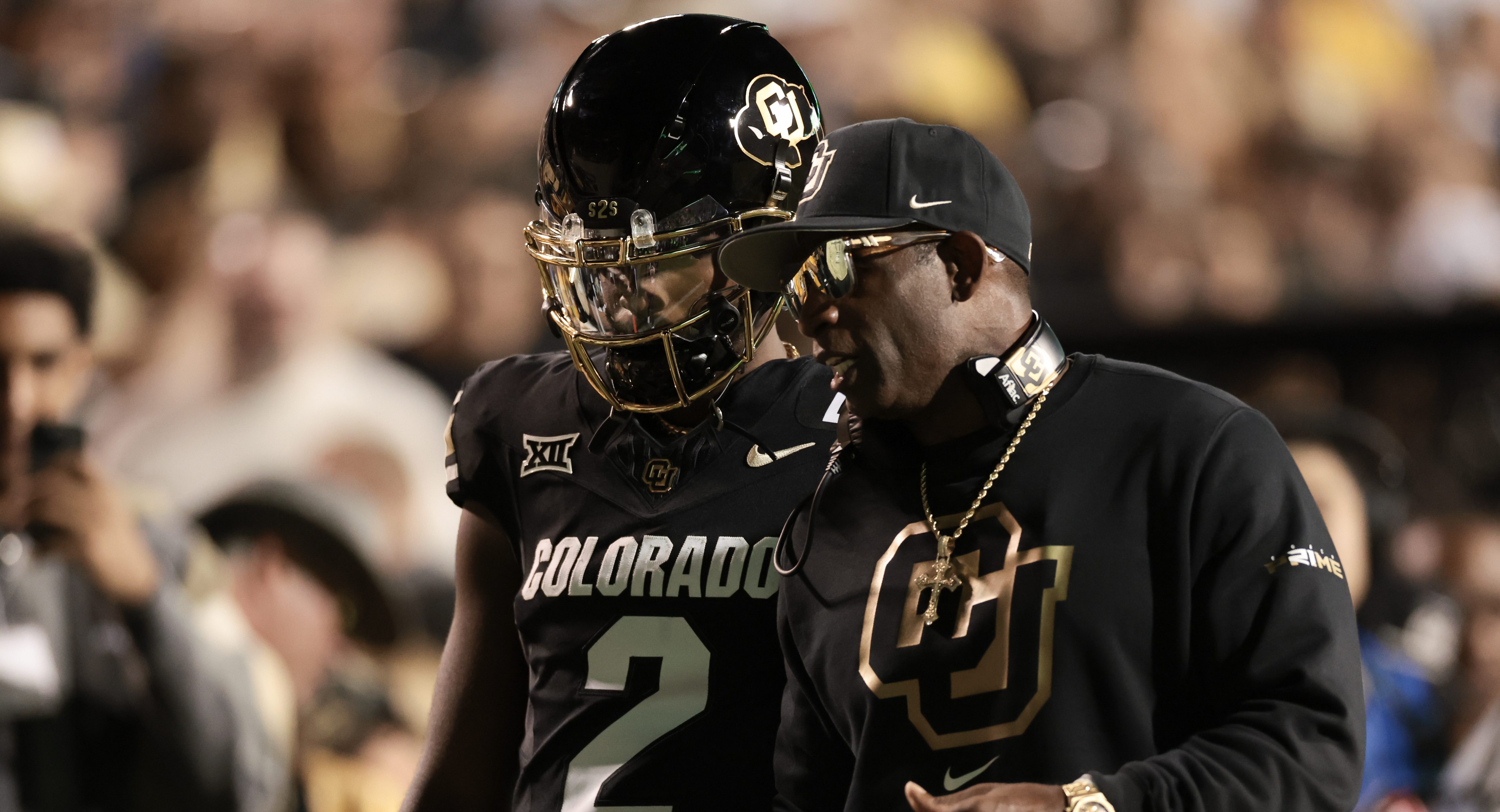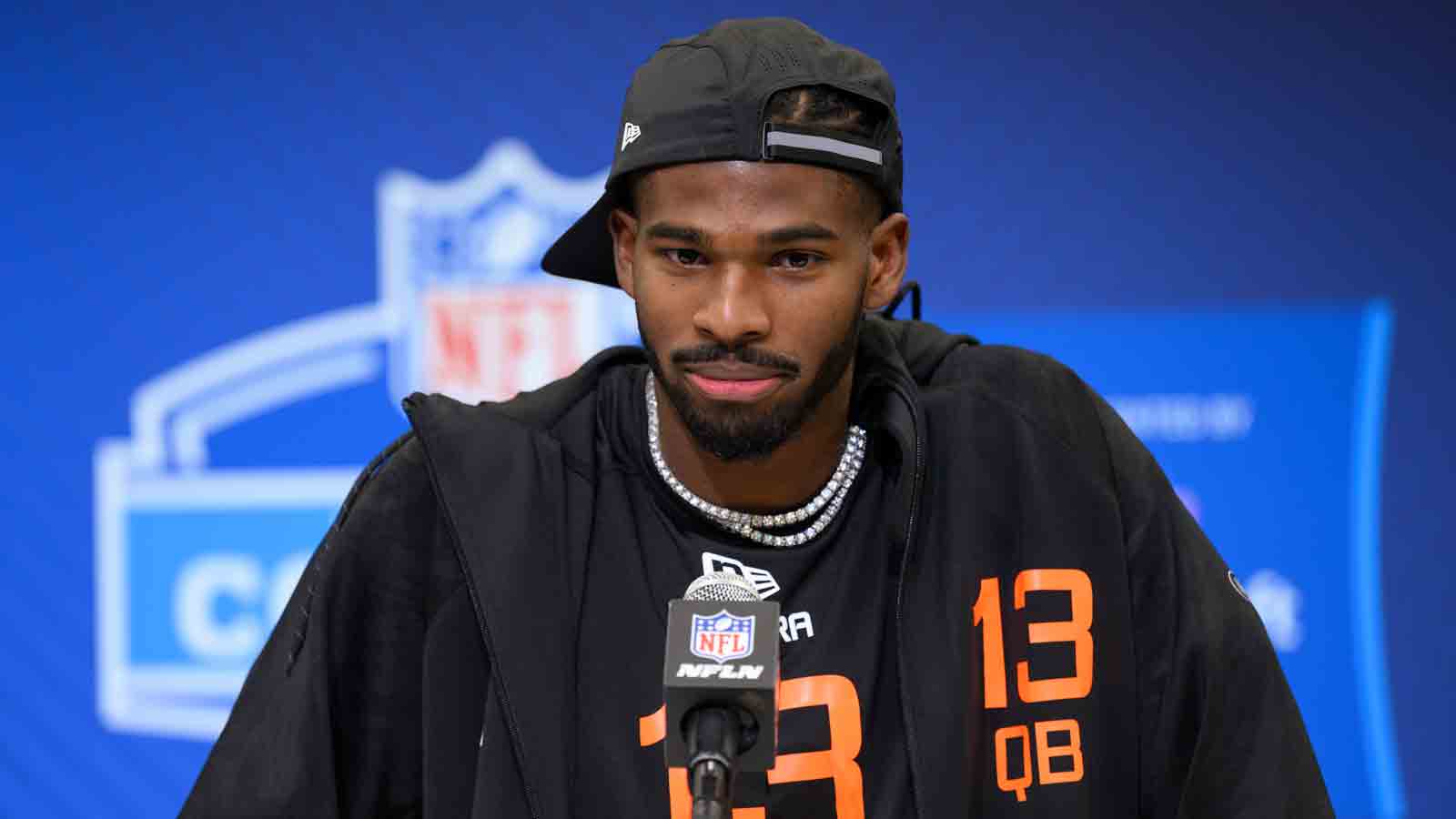Deion Sanders Jersey Retirement Controversy: Fair or Foul?
Prime Time Controversy: Jersey Retirements Spark Debate at Colorado
Introduction: The Retirement Ripple Effect
The world of college football is buzzing, and not just about touchdowns and tackles. This time, the spotlight is on Deion "Coach Prime" Sanders and his Colorado Buffaloes. The recent announcement to retire the jerseys of Shedeur Sanders and Travis Hunter before the spring game has ignited a firestorm of opinions. But is it a stroke of genius, or a misstep that alienates the program's legacy? Let’s dive in and explore the swirling controversy.
Deion Sanders' Olive Branch: A Gesture of Reconciliation?
Knowing the move to retire jerseys early might have stirred some feelings amongst alumni and former players, Coach Prime extended a very public olive branch. “Can we start off with me just shaking everyone’s hand that played here before, just give them a hug?” Sanders proposed after a recent practice. It's a classic Coach Prime move: address the elephant in the room head-on, with a large dose of charisma. Is this a genuine attempt to mend fences, or savvy damage control? Perhaps a little of both.
A History of Hallowed Numbers: More Than Just a Jersey
Retiring a jersey is a weighty decision. It's more than just taking a number out of circulation; it's enshrining a player's legacy, celebrating their impact on the program. It's why the Buffaloes' decision to honor Hunter and Sanders so early has raised eyebrows. They're only the fifth and sixth players in the program's 135-year history to receive such an honor. That's a pretty exclusive club!
H2: The Speed of Light: Too Soon for a Retirement Ceremony?
H3: Is it warranted?
Some critics argue that retiring jerseys after just a year or two feels premature. Shouldn't such a distinction be reserved for players with a proven, long-term commitment to the program? Has enough time passed for their impact to be truly measured? Others argue that their instant impact and immense popularity warrant the recognition.
H2: The Name Game: Highlighting the Legacy Debate
H3: Big names vs. instant sensations
The controversy stems, in part, from the illustrious names that already grace the halls of Colorado football fame. To many, retiring a jersey is a testament to years of dedication, consistent performance, and leaving an indelible mark on the university's history. Do Sanders and Hunter, despite their talent and impact, stack up against those who have bled black and gold for multiple seasons?
H2: Transfer Portal Perceptions: A Modern Complication
H3: The changing landscape of college football
The rise of the transfer portal adds another layer of complexity. In today's college football landscape, players can easily move between programs. Does this fluidity make investing so heavily in the legacies of players who might not stick around for long a risky proposition? It's a valid question to consider.
H2: Marketing Magic: Priming the Pump for Success?
There's no denying that Coach Prime is a master marketer. Retiring the jerseys of his star players generates buzz, attracts attention, and fuels the hype surrounding the Colorado program. Is this purely a sentimental gesture, or a calculated move to enhance the team's brand and attract recruits? Let's be honest, it's probably both.
H2: Building a Brand: The Power of Primetime
H3: Image is everything
Deion Sanders understands the power of image. He's building a brand around the Colorado Buffaloes, and Shedeur Sanders and Travis Hunter are central figures in that branding strategy. Their success translates to the program's success, which in turn attracts recruits, sponsors, and fans. It's a virtuous cycle, driven by Coach Prime's vision.
H2: The Coach Prime Effect: A New Era for Colorado
Since arriving in Boulder, Deion Sanders has completely transformed the Colorado football program. He's brought in top-tier talent, energized the fanbase, and injected a new sense of excitement into the team. This move, like many others, is classic Coach Prime – bold, unconventional, and guaranteed to get people talking. The question is, is it sustainable?
H2: Locker Room Loyalty: Team Dynamics Under the Spotlight
H3: Potential impact on team morale
While the recognition for Hunter and Sanders might be celebrated by some, there's also the potential for it to create friction within the locker room. How do other players, who have also worked hard and contributed to the team's success, feel about these two players receiving such preferential treatment? Team chemistry is crucial, and any perceived imbalance could disrupt that.
H2: Social Media Storm: Fans React to the Jersey Retirements
As expected, the jersey retirement announcement has set social media ablaze. Fans are divided, with some praising Coach Prime's bold move and others criticizing it as premature and disrespectful to past players. The online debate is passionate and often heated, reflecting the strong emotions that surround college football.
H2: The Legacy Question: What Truly Makes a Legend?
H3: Beyond stats and accolades
What truly makes a legend? Is it solely based on statistics and accolades, or is it about something more? Is it about the impact a player has on the program, the university, and the community? Does it involve the inspiration of the fans or the motivation of the next generation to wear the colors? These are questions that fuel the debate surrounding the jersey retirements.
H2: Recruit Magnetism: Drawing Top Talent to Boulder
H3: The allure of Prime Time
Let's not underestimate the recruiting impact of this move. Prospective recruits see that Coach Prime is willing to go to bat for his players, celebrating their achievements and recognizing their value. This can be a powerful draw for top talent, who want to play for a coach who believes in them and is willing to showcase their abilities.
H2: The Bigger Picture: Long-Term Vision for Colorado Football
Ultimately, the decision to retire the jerseys of Shedeur Sanders and Travis Hunter is part of a larger strategy to elevate the Colorado football program to new heights. Coach Prime has a clear vision for the team, and he's not afraid to take risks and make bold moves to achieve his goals. Whether this particular move pays off in the long run remains to be seen, but one thing is certain: the Colorado Buffaloes are back in the spotlight.
H2: The Financial Factor: Revenue Generation and Sponsorships
H3: The business of college sports
College football is big business, and revenue generation is a key consideration in every decision. The increased attention and excitement generated by the jersey retirements can lead to increased ticket sales, merchandise sales, and sponsorship opportunities. These financial benefits can then be reinvested into the program, further enhancing its competitiveness.
H2: Conclusion: Weighing the Legacy, the Impact, and the Future
The decision to retire the jerseys of Shedeur Sanders and Travis Hunter has undoubtedly stirred the pot at Colorado. While some criticize the move as premature and disrespectful to past players, others see it as a bold and strategic decision that will benefit the program in the long run. Only time will tell if this gamble pays off, but one thing is for sure: Coach Prime is playing the game his way, and he's determined to make the Colorado Buffaloes a force to be reckoned with.
H2: Frequently Asked Questions (FAQs)
Here are some frequently asked questions about the jersey retirement controversy at Colorado:
-
Why is there controversy surrounding the jersey retirements? Some believe it's too early to retire their jerseys, especially considering the short time they've been with the program and the numerous talented players who have come before them.
-
What is Deion Sanders' response to the criticism? Coach Sanders has extended an invitation to former players to return and be honored, suggesting a gesture of reconciliation and respect for the program's history.
-
How could this affect team morale? There's a potential for resentment if other players feel overlooked or undervalued. Maintaining team chemistry is essential, and perceptions of favoritism could create divisions.
-
What are the potential benefits of retiring the jerseys early? It generates excitement, attracts attention, and can be a powerful recruiting tool, signaling to prospective players that their achievements will be recognized and celebrated.
-
Does this impact the overall brand and perception of the Colorado football program? Absolutely. It reinforces the "Prime Time" brand, making Colorado a more appealing destination for top athletes and increasing the program's visibility nationwide.

